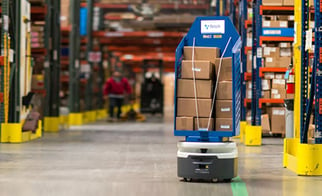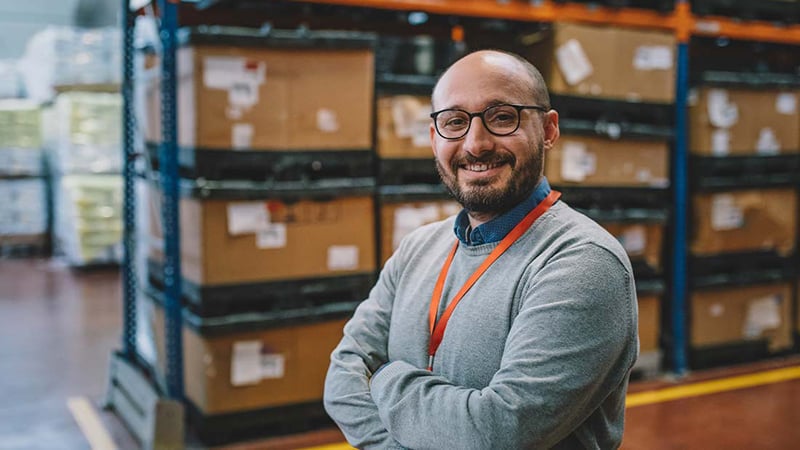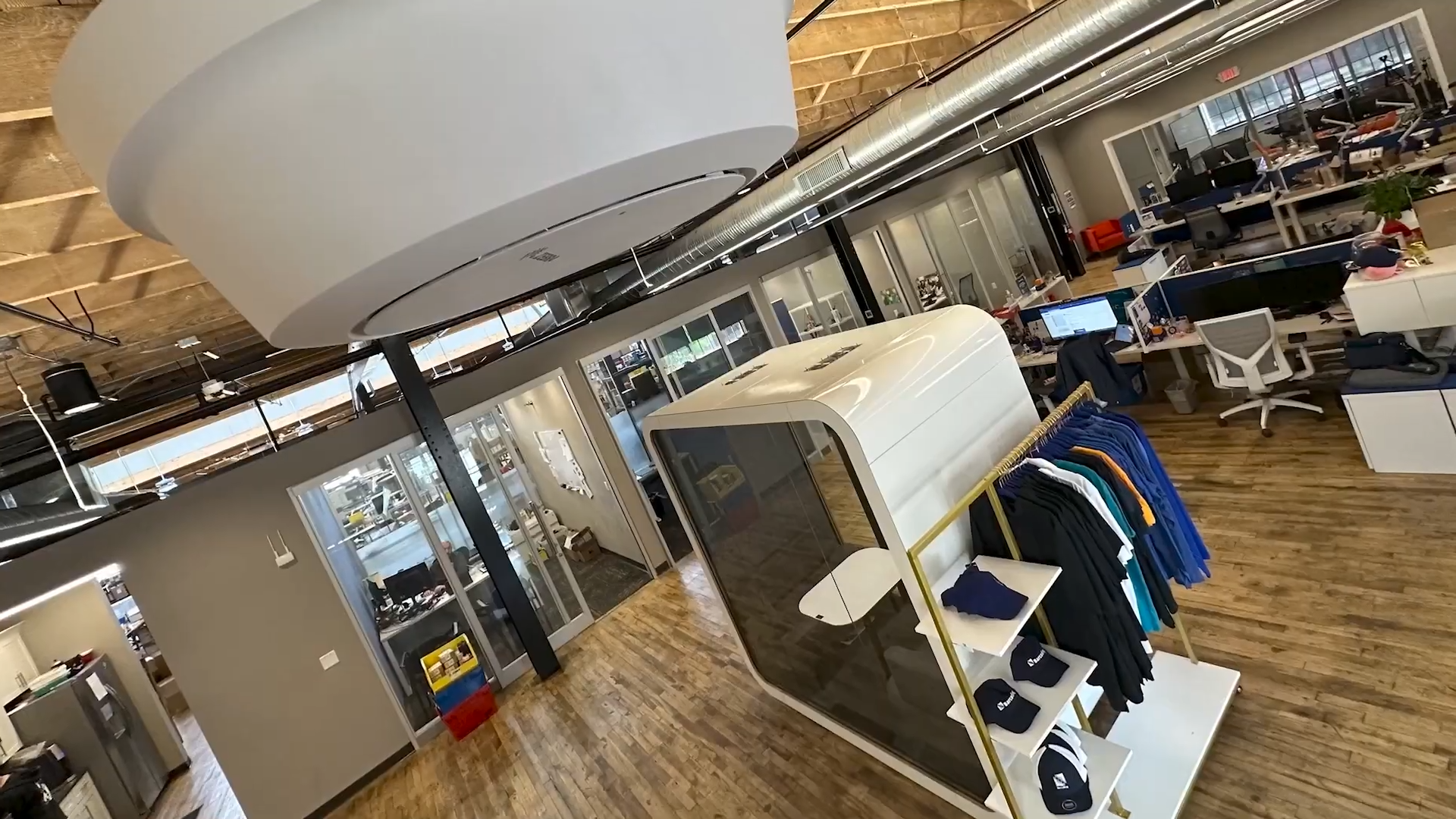As #SupplyChainGeeks everywhere look toward the future, it’s often with a focus on leveraging technology for more proactive, predictive, and automated supply chain operations. Digitalization can help increase efficiency, reduce risks, and support resilient supply networks.
Digitalization is the process of integrating technologies like automated identification and data capture (AIDC), the internet of things (IoT), artificial intelligence (AI), machine learning, and cloud computing into supply chain operations to facilitate real-time tracking, predictive analytics, and secure, transparent communications between partners.
For industries with complex supply chains, digitalization has become critical for maintaining a competitive advantage, adapting to changing market conditions, and anticipating and responding to disruption.
Industry giants can often afford to be early adopters and implement innovative digitalization strategies at scale, but what about small and medium-sized businesses? SMBs don’t have the same budgets or resources as the titans. But digitalization isn’t an all-or-nothing proposition. SMBs can benefit from a strategic, measured approach that focuses on proven, cost-effective solutions that offer a timely path to significant return on investment.
We recently reached out to Brian Gaunt, VP, Accelerated Digitalization at DHL Supply Chain, to find out more about what operations professionals at SMBs can learn from a supply chain giant and leader in digitalization like DHL. Here are a few highlights from what he had to share.
Q: What advantages does an industry giant like DHL Supply Chain have in blazing the digitalization trail in supply chain logistics and warehousing?
DHL Supply Chain’s size and resources place it at the forefront of advancing supply chain technologies. It’s not only DHL’s scale, but also its organizational commitment, that supports innovation in digitalization. That means dedicated resources and a structured approach to not just stay abreast of new tech developments, but also to work closely with vendors to evaluate and commercialize new solutions within its networks—in short, to help drive innovations that have strong potential to benefit DHL and the industry at large.
Q: How does DHL Supply Chain’s innovation funnel work to advance and accelerate new solutions?
At the top of the funnel, we monitor a broad range of emerging and established technology vendors, so we are aware of what they have in their pipeline. We’ll engage more deeply with key partners to get a better understanding of their technology and often bring a supply chain perspective to the development process to ensure that solutions in development will meet the needs of our organization. In this role we have operated as a collaborative partner as we did with Boston Dynamics on the development of the Stretch™ robot. We’ll then conduct a carefully controlled proof-of-concept at one of our sites to better understand the performance and value of the solution in real-world operating conditions. If that is successful, we will offer the solution to our customers with similar use cases.
Q. How much faster can DHL Supply Chain evaluate new solutions compared with smaller firms, and how does DHL Supply Chain include partners in its piloting process?
DHL Supply Chain operates a network of more than 520 sites in North America; our scale provides two distinct advantages during proof-of-concept. We have categorized the specific use cases for digitalization at each of our sites which allows us to select the best possible specific environments where proof-of-concepts can be conducted for any given solution.
The company also dedicates specialized resources like solution design, engineering, safety, and operations to support proof-of-concept. This cross functional team of subject matter experts are the main factor of success for automation. For DHL Supply Chain, our talented employees will continue to be the deciding element in how successful we are from proof-of-concept to implementation.
Q. How do DHL’s advances in digitalization contribute to resource optimization and sustainability?
We are always looking for opportunities to improve the sustainability of our operations and digitalization plays an important role in that effort by eliminating paper-based processes, optimizing packaging, and improving transportation efficiency. We are committed to reducing our logistics-related greenhouse gas emissions to net zero by 2050. So far some of the advances we have made towards this goal includes the deployment of electric yard trucks, electric Class 8 vehicles and we continue to phase out LPG powered material handling equipment (MHE) such as forklifts, replacing them with their electric counterpart.
Q. How can SMBs in supply chain related industries scale down DHL Supply Chain’s insights and innovations to apply to their own operations?
While SMBs aren’t often positioned to adopt emerging tech solutions as early as DHL, supply chain digitalization is maturing fast. That has already made many solutions more widely used and accessible to smaller businesses.
Broader adoption of many solutions has also led to standardized deployment processes—because a lot of the up-front learning has already been done—so new implementations can be achieved at lower costs and with more predictable outcomes. All together, that helps make proven solutions a viable entry point for SMBs to digitalize high-impact areas of their own operations.
Barcoding’s Process, People, Technology approach helps our customers take a holistic approach to select, deploy, and manage solutions for optimal impact.
Q. What are the key data-driven insight opportunities for SMBs using newer technologies and solutions?
SMBs can gain significant value from technologies that provide end-to-end visibility, like DHL’s MySupplyChain platform. Platforms like these can provide a comprehensive view of products in inventory and transit, from a single portal. Ready access to that kind of data can enable operational improvements, customer service enhancements, and more predictive supply chain management.
Q. What advice would you give to smaller warehouse operators and others who may be hesitant to invest in technologies like automated guided vehicles (AGVs), autonomous mobile robots (AMRs), and advanced digital tools?
Not every technology is suitable for every warehouse. If there’s hesitation about the business case for a certain tech solution, SMBs should take a close look at other digitalization opportunities within their operations.
It’s also important that decision-makers think beyond robotics when it comes to digitalization. Software such as sensor technology also holds many opportunities and is often available at a lower cost.
Partnering with a third-party logistics provider can also help absorb much of the risk and complexity that come along with the adoption of new technologies.
If you’re considering your first move, identify low-risk, high-value opportunities. Embracing digitalization can have significant impacts on efficiency, productivity, speed, and visibility into your operations. And the success you achieve with initial efforts can help support your ongoing digital transformation.
Partnering with an experienced team of experts in supply chain technologies, data capture, and integration can help you achieve a smoother, more predictable digital transformation.
Q. What futuristic warehouse and logistics technologies are in DHL’s sights?
Two fascinating areas are humanoid robots and supply chain orchestration.
Workers have become accustomed to working alongside robotics and automation solutions like AMRs and AGVs; the next generation of warehouse robots could look a lot more like the people they’re assisting—which has the potential to unlock some exciting new use cases for automation.
DHL also expects orchestration to be key to the future of supply chain management. A fully orchestrated supply chain would rely on multiple, integrated digitalization technologies to capture and analyze data to generate near-100% accurate inbound forecasts. From there, solutions would enable the development and execution of a plan to ensure all resources across the supply chain are balanced and optimally utilized to execute on the plan.
We also expect Gen AI to take centerplace; helping to improve inventory management by predicting demand and optimizing inventory, automate repetitive tasks like picking, sorting and packing, freeing up human associates for more complex tasks.
Optimize Your Path to Supply Chain Digitalization
Whether you’re just considering your first steps toward a digital transformation or you need help getting more from the technologies you have in place, a trusted integration partner can help you minimize risk, streamline implementations, and optimize outcomes for your operations. Find out just how big a difference a team of experts can make with our free download. Click right here or below to get yours—and get started!







